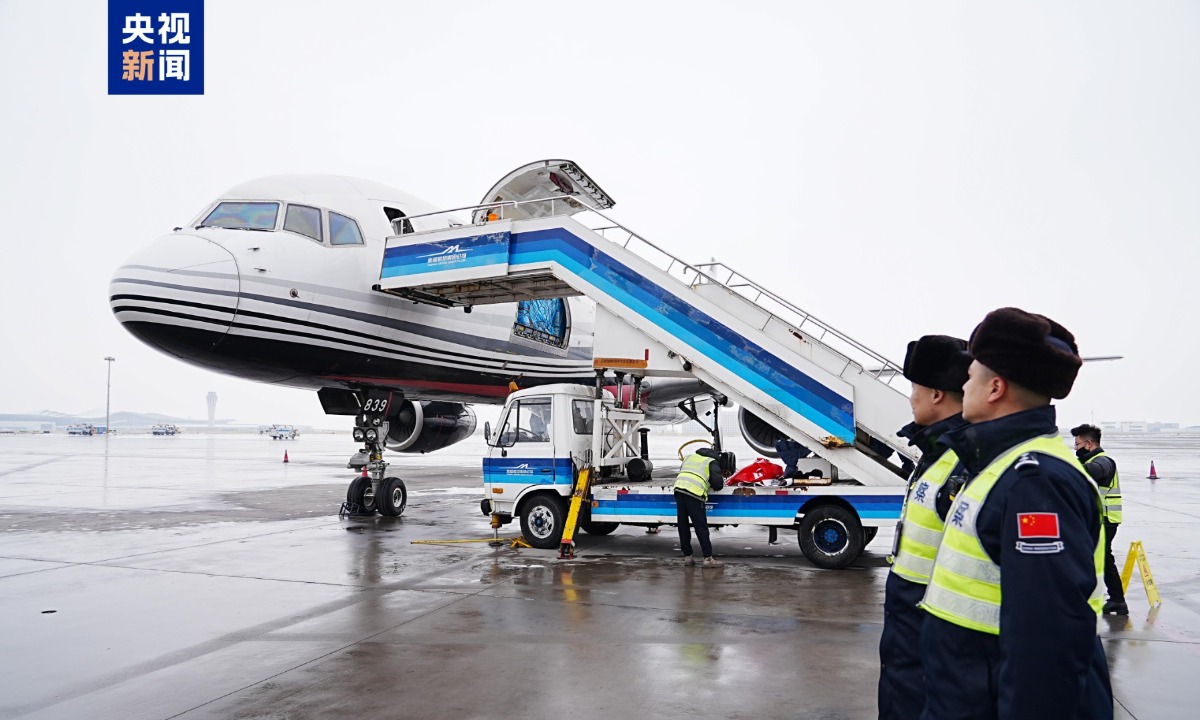China adds 75 international air cargo routes in first four months, nearly 90% to Asia, Europe

The first cargo route between Urumqi in Northwest China's Xinjiang Uygur Autonomous Region and Islamabad in Pakistan officially commences operation on March 4, 2025. (Photo/CMG)
China added 75 international air cargo routes in the first four months of 2025, with nearly 90 percent of the new routes connecting to destinations in Asia and Europe, China Media Group (CMG) reported Tuesday, citing the China Federation of Logistics and Purchasing (CFLP).
The growth reflects China's efforts to expand its global trade network despite rising tariffs imposed by the US, an expert told the Global Times.
A total of 17 new cargo routes were launched in April alone. As of April 30, the new routes had boosted weekly round-trip flights by more than 162. In 2024, China launched 168 new international cargo flight routes.
The routes are primarily focused on Asia and Europe, with 35 targeting Asian destinations and 31 connecting to Europe. North America saw six new routes, while South America and Africa added two and one, respectively.
An air cargo route between Ezhou in central China's Hubei Province and the southern Indian city of Bangalore was launched on March 6, Xinhua News Agency reported, citing SF Airlines. The Ezhou-Bangalore route will provide an annual air cargo transport capacity of more than 5,000 tons, the cargo carrier said.
"This shows that despite tariff pressure from the US, China remains committed to opening-up and free trade, and it is expanding trade ties with other regions, especially shifting to Asia and Europe," Wang Yanan, chief editor of Aerospace Knowledge magazine, told the Global Times on Tuesday.
In Wang's view, strengthening trade ties with countries outside the US is a natural response to US-imposed tariffs, and the trend is likely to become even more pronounced.
The cargo mainly consists of cross-border e-commerce goods, fresh produce, electronics and auto parts, according to the CMG report.
"It can be seen that China is working hard to enhance its integration with global markets and provide stability to international supply chains," Wang noted.
China's cross-border e-commerce rose by 10.8 percent in 2024, with their share of the country's total foreign trade increasing to 6 percent, according to the Ministry of Commerce.
Photos
Related Stories
- Guangzhou launches direct shipping route to South America
- Air cargo carriers add 19 routes to Europe in Jan-Feb, reflecting growing trade
- China's civil aviation sector to see stable growth during Labor Day holiday
- China's air passenger trips hit 190 mln in Q1
- Beijing's Daxing airport expects record passengers during May Day holiday
Copyright © 2025 People's Daily Online. All Rights Reserved.









